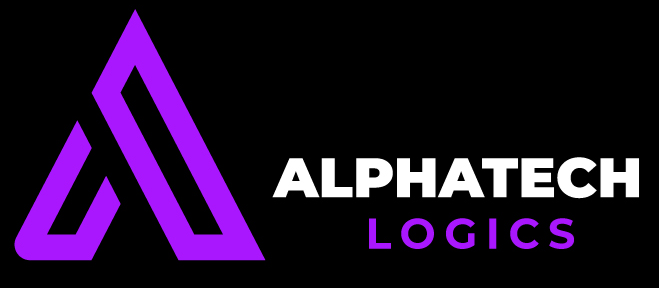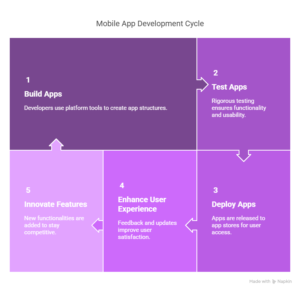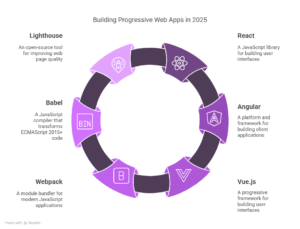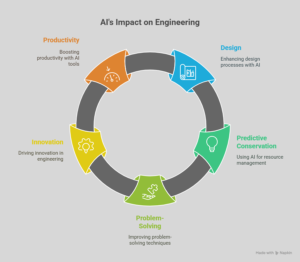One of a company’s most valuable assets in the digital revolution era is knowledge. However, the majority of companies are unable to access the information they already have. Important information is buried in emails or intranets, papers are distributed across departments, and staff waste valuable time trying to locate what they need. The game is changing because of AI, and specifically because of Large Language Models (LLMs).
Problems with Traditional Enterprise Search
The operation of enterprise search engines has not changed throughout time when compared to that of other search engines. The system returns results with the keyword as the user enters it. However, this approach fails to account for context, purpose, or the true meaning of the query that was typed.
Additionally, workers need replies that go beyond just paperwork. Instead of a list of PDF links, employees need summary reports, insights, or a comprehensive step-by-step process. The current tools are unable to provide the required degree of knowledge.
Introducing LLMs: Contextual, Intelligent AI
The way computers understand and generate human language has been transformed by huge language models like GPT-4. By learning from massive amounts of data, LLMs are able to grasp context, subtlety, and purpose. LLMs have the following capabilities when integrated into knowledge management systems:
Comprehend natural language queries, such as “How do I reset my ERP password?” as opposed to “ERP+reset+password.”
Identify important ideas and summarize written documents.
Use a variety of sources for responses.
Learn from user interactions on a regular basis
The Impact of LLMs on Commercial Search
1. Comprehension of the Context
Unlike keyword-based systems, LLMs are able to comprehend the user’s intent. The model can understand the purpose and provide the appropriate response, regardless of how you ask a question—formally or informally.
2. Unified Access to Information
An LLM can gather data from a variety of sources, including emails, file storage, help desks, and CRMs, and then condense it into a single, helpful answer. No more switching between apps.
3. Intelligent Summing
Do you want to understand a 20-page policy in just two minutes? Depending on your role (e.g., technical summary for engineers, business summary for executives), LLMs may condense documents, extract key takeaways, and even modify the summary format.
4. Persistent Assistant
Many businesses are using LLMs in chatbots and virtual assistants. With the ability to answer complicated questions in real time, these AI applications increase productivity and lower support burdens.
5. Better Instructional and Induction Programs
New hires can utilize AI to learn about business procedures, corporate rules, or how to use tools right away, without having to read through dozens of manuals or interrupt their coworkers.
Applications in the Real World
Quicker Decision Making: Employees make better decisions when they can find information more quickly.
Decreased Operating Costs: Less time spent looking means less time wasted on unproductive activities.
Knowledge Retention: Even when important workers depart, their expertise is still accessible and searchable.
Better Collaboration: Teams may make use of existing information without duplication.
Obstacles and Factors to Think About
Although the advantages are obvious, there are difficulties in integrating LLMs into corporate search:
Security and Data Privacy: Sensitive company information must be protected. Businesses need deployments that are secure and private.
Accuracy and Bias: LLMs occasionally fabricate or hallucinate information. Human validation is still necessary.
Complexity of Integration: Incorporating LLMs into other data systems requires careful preparation and technological skill. We are just beginning to explore the possibilities for the
Future of knowledge management for businesses.
As LLMs improve, they will be able to comprehend user roles, business-specific terminology, and user preferences with greater accuracy. The ideal scenario? A world where every employee has a customized, AI-powered knowledge assistant in their pocket. Instead of asking “Where do I find this document?” In the future, the question will be “How do I most effectively solve this issue?” And AI will provide the answer. In conclusion, big language models are not just a technological fad; rather, they represent a fundamental change in how businesses collect, access, and use their knowledge. The benefits are significant for individuals who are willing to embrace artificial intelligence: improved team intelligence, streamlined processes, and a truly networked organizational intelligence.





